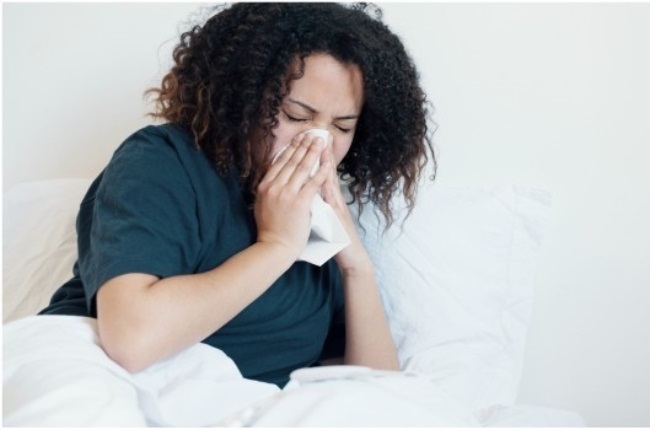
Wet coughs vs dry coughs: here's what they mean – and what to do about them.
With the cold of winter creeping in, we are all preparing ourselves for the unwelcome arrival of a runny, blocked nose and/or a wet or a dry cough.
The good news is that there are things we can do to recover faster.
The key to knowing what will work best for you is to understand your symptoms.
Cough symptoms: Why am I coughing?
A cough is a protective reflex, which helps to clear our airways from foreign particles, irritants, fluids and germs.
There are different types of coughs, which have varying underlying causes and originate from different parts of our bodies.
Determining the type a cough you have and where it is coming from will help point to the underlying cause and assist you with getting the right treatment.
What do I need to know about my cough? Wet or dry?
A cough can be classified by its duration, quality, character and timing.
The quality of a cough refers to whether it is dry or wet.
A non-productive or dry cough is when there is no mucus produced.
The cough is frequently triggered by inflammation or irritation of the respiratory tract.
Common causes include a virus, pollution, allergy or asthma.
Dry coughs aren’t always harmless and if this symptom persists for more than three weeks, a visit to your local doctor is recommended.
A productive or wet cough results from excess mucus production in the nasal passages, airways or lungs.
Causes of a wet cough include invasion of these areas by a virus or bacteria, which results in a sinus infection, bronchitis or pneumonia.
Coughing can be persistent in certain conditions such as chronic bronchitis, and bronchiectasis, where there is an underlying abnormality of the lung or airways.
What can I do for my cough?
Simple measures such as using a cool mist humidifier, saline nose drops, nasal suctioning for infants as well as drinking plenty of liquids to stay well hydrated, can provide some relief from coughs.
However, at times these measures may not be enough, and we may need to seek the assistance of a local pharmacy to help with our symptoms.
There are essentially four main types of cough medications. These include cough suppressants, which suppress the body’s urge to cough. Active ingredients may include codeine, pholcodeine, and dextromethorphan, which block the cough reflex.
There is little evidence for the use of cough suppressants and side effects can vary from dizziness, drowsiness, headache, nausea and constipation.
In addition, suppressing the cough reflex may, in fact, be harmful if there is a wet cough.
Then there are expectorants, which increase the amount of secretion from the airways to make it easier to cough up mucus.
These may contain guaifenesin, ammonium chloride, sodium citrate or ipecacuanha and can be used for wet coughs, although there is also limited information to support their effectiveness.
You might like | My path with coronavirus: 5 things I learned from having Covid-19
There are also demulcents, which contain ingredients like honey and lemon. They can be soothing, but there is no evidence for their efficacy.
The final group are mucolytics.
These medications break the bonds in mucus resulting in thinner secretions, making it easier to move these out of the lungs, airways or sinuses.
Active ingredients in these medications are either N-acetylcysteine or bromhexine.
N-acetylcysteine has been shown to decrease a cough in children over the age of two and has an immediate effect of reducing the thickness of mucus making it easier to clear the airways and nasal passages.
Some are available in an effervescent tablet form, which makes them easier to administer, and a quick and effective treatment method.
Most cough syrups are available over the counter and have varied recommendations regarding use in children.
It’s important to remember that you should seek medical advice if symptoms continue for more than three weeks, or if you experience shortness of breath, chest pain, breathing difficulties, cough up blood, or other worrying symptoms, such as weight loss, a change in your voice or lumps in your neck.
You should also talk to your doctor or pharmacist before taking over-the-counter medications if you suffer from chronic medical conditions such as diabetes, high blood pressure or heart disease.




 Publications
Publications
 Partners
Partners

















